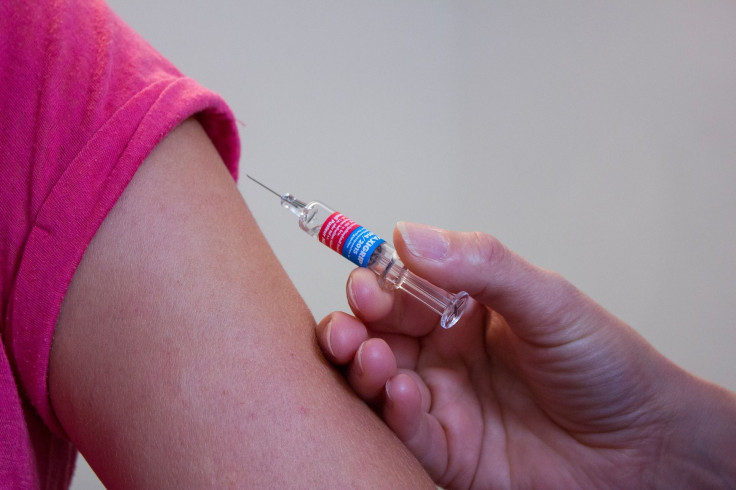Get Your Flu Shot Earlier In The Day; Study Shows Vaccinations May Work Better In The Morning

Getting a flu vaccine every year has benefits beyond protecting you from seasonal influenza. For example, pregnant women who were vaccinated against the flu had a significantly lower risk of delivering a stillborn baby, and high-dose flu vaccines have been shown to be protective against certain cancers. The flu shot may also lower your risk of stroke and flu-related pneumonia.
Making time to get the flu vaccine really does seem to pay off, and new research shows the time of day you receive the shot matters too. Researchers at the University of Birmingham find that getting vaccinated in the morning is the most effective.
In the study, the researchers gathered 276 participants over the age of 65 and vaccinated them against three different flu strains. The participants were vaccinated either in the morning between 9 and 11 a.m. or in the afternoon from 3 to 5 p.m. One month later, the researchers tested the participants for antibody concentration. For two of the flu strains, the morning groups had increased levels of antibody concentration compared to those who received their shot in the afternoon. The third strain, however, didn’t show much of a difference in antibody levels between morning and afternoon.
The results suggest that getting a flu shot might be more effective early in the morning, but why is that the case? It all comes down to the fact that our immune systems experience ebbing and flowing throughout the day. “We know that there are fluctuations in immune responses throughout the day and wanted to examine whether this would extend to the antibody response to vaccination,” said Dr. Anna Phillips, senior author of the study, in a statement. “Being able to see that morning vaccinations yield a more efficient response will not only help in strategies for flu vaccination, but might provide clues to improve vaccination strategies more generally.”
The research may prove especially useful for older populations, who are more prone to influenza than younger, healthier people. In addition, some 250,000 to 500,000 people die every year from the flu, sometimes due to a lack of vaccination and other times because antibodies aren’t at high enough levels after vaccination. If doctors can find a “sweet spot” during the day when vaccination is most effective, they’d be able to better bolster people’s immune systems.
"A significant amount of resource is used to try and prevent flu infection each year, particularly in older adults, but less than half make enough antibody to be fully protected,” said Janet Lord, a co-author of the study, in the statement. “Our results suggest that by shifting the time of those vaccinations to the morning we can improve their efficiency with no extra cost to the health service.”
However, more research will need to be done in order to gauge the extent to which early-morning vaccinations help patients — and how it may impact other flu-related diseases like pneumonia.
Source: Phillips A, Lord J, et al. Vaccine , 2016.



























